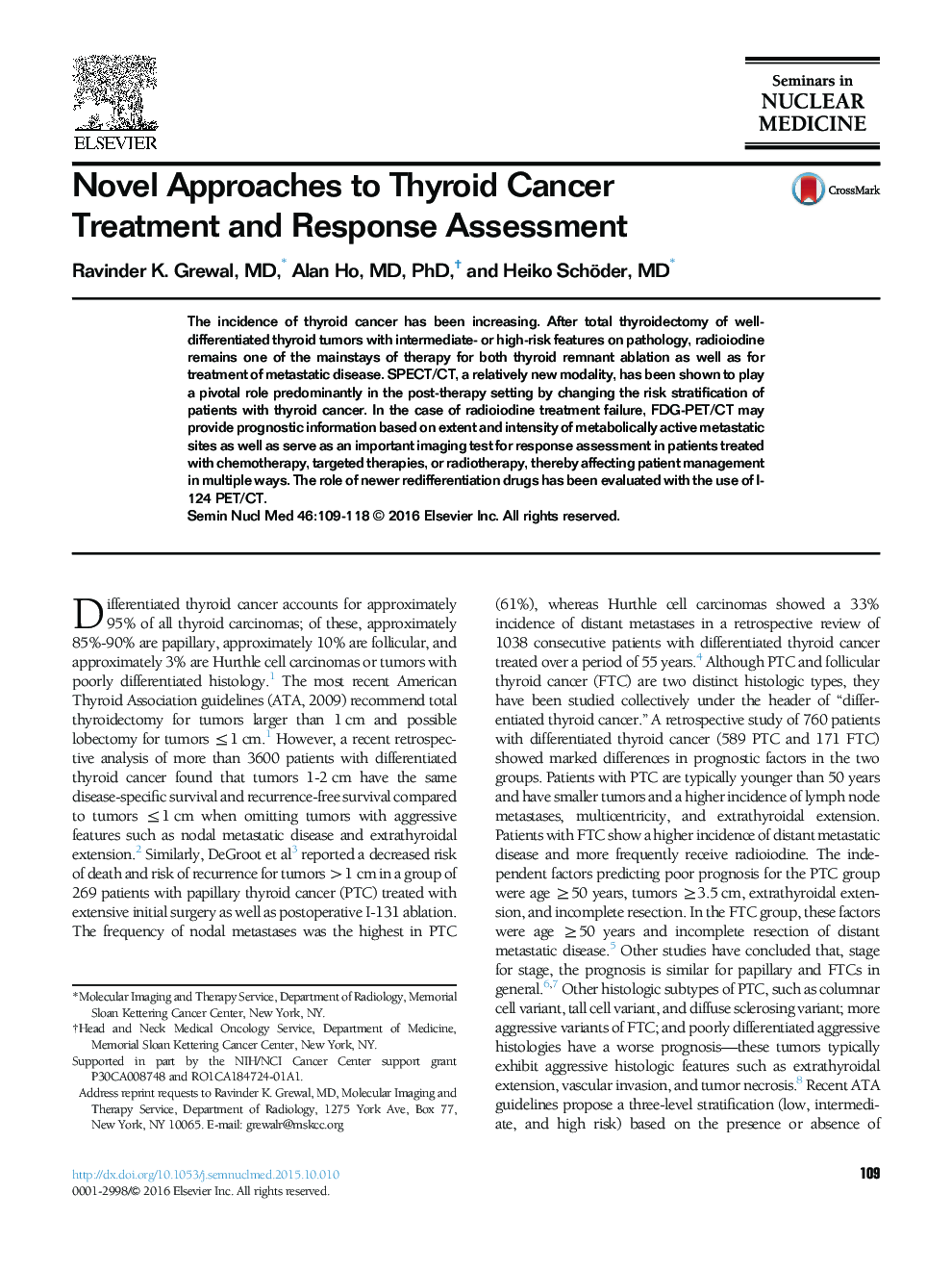| Article ID | Journal | Published Year | Pages | File Type |
|---|---|---|---|---|
| 4250818 | Seminars in Nuclear Medicine | 2016 | 10 Pages |
The incidence of thyroid cancer has been increasing. After total thyroidectomy of well-differentiated thyroid tumors with intermediate- or high-risk features on pathology, radioiodine remains one of the mainstays of therapy for both thyroid remnant ablation as well as for treatment of metastatic disease. SPECT/CT, a relatively new modality, has been shown to play a pivotal role predominantly in the post-therapy setting by changing the risk stratification of patients with thyroid cancer. In the case of radioiodine treatment failure, FDG-PET/CT may provide prognostic information based on extent and intensity of metabolically active metastatic sites as well as serve as an important imaging test for response assessment in patients treated with chemotherapy, targeted therapies, or radiotherapy, thereby affecting patient management in multiple ways. The role of newer redifferentiation drugs has been evaluated with the use of I-124 PET/CT.
